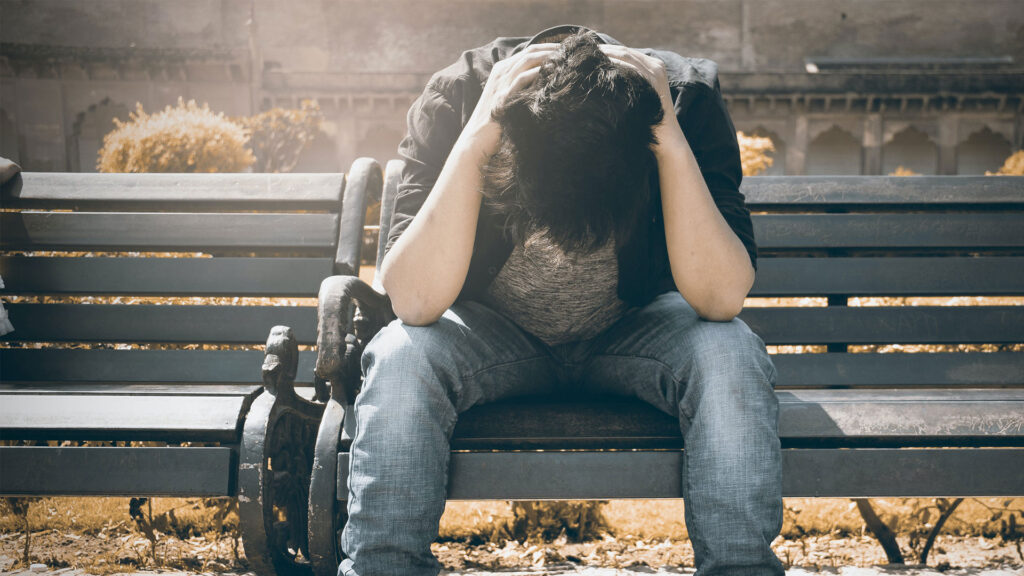Loneliness is universal, and everyone deals with it at least once in a while. However, loneliness is also something that’s highly personal, and everyone experiences it differently. For example, what causes you to feel lonely may not cause another person to feel that way, and the symptoms of loneliness that you experience may be different from the symptoms that another individual has. Not to mention, your experience can vary whether you’re a man, woman, child, or senior citizen.
Here’s how to tell if you’re lonely based on some general signs of loneliness as well as a breakdown of symptoms of loneliness in specific populations.
General signs of loneliness
Although signs of loneliness are different for everyone, there are some overarching general symptoms of loneliness to be on the lookout for.
Ultimately, loneliness results in a feeling of disconnection from others, leading to a sense of emptiness or lack of fulfillment, says Greg Lozano, LPC, a therapist with Grow Therapy. These feelings can strike no matter who you are or what stage of life you’re in.
The many symptoms of loneliness may be emotional, social, or physical. Dr. Jaclyn Gulotta, Ph.D., LMHC, a therapist with Grow Therapy, says to be on the lookout for the following signs of loneliness:
Ultimately, loneliness results in a feeling of disconnection from others, leading to a sense of emptiness or lack of fulfillment.
- Greg Lozano, LPC
Emotional symptoms of loneliness:
Social symptoms of loneliness:
- Feeling isolated from friends
- Feeling isolated from family
- Feeling lonely even when you’re with other people
- Feeling disconnected
- Feeling distant from others
Physical symptoms of loneliness:
- Feeling run down
- Fatigue
- Stomach aches
-
Changes in eating habits
-
Changes in sleeping habits
Additionally, loneliness can present differently in different groups of people. Here are some specific symptoms of loneliness in men, women, children, the elderly, and people in relationships.
Signs of loneliness in men
Men can show loneliness in ways that aren’t so obviously linked to being lonely. “Men may express their loneliness through emotions like anger and become defensive with others,” says Dr. Gulotta.
Additionally, Lozano says some lonely men may seek out multiple romantic relationships, either one after another or simultaneously, and in some cases, sex addiction may result.
“In many circumstances, any behavior carried out in excess in an attempt to fill an inner void could indicate loneliness,” Lozano says.
Signs of loneliness in women
Similar to men, symptoms of loneliness in women may include seeking out multiple romantic relationships, or engaging in any other behavior excessively to fill the void that the loneliness has created, says Lozano.
Additionally, Dr. Gulotta says women may show loneliness through a depressed mood, self-esteem issues, and insecurity.
Women go through various changes and transitional periods in life that can lead to loneliness, such as puberty, pregnancy, parenthood, and menopause.
Signs of loneliness in children
If a child is lonely, they may show it in different ways. Some children may be more outwardly expressive than others. Dr. Gulotta says loneliness in children might present as them having anxiety, mood changes, or acting out. In some cases, the child might isolate, as well, says Lozano.
If the child is younger, signs of loneliness in kids may also include making up imaginary friends or becoming more clingy towards their parents, trying to get them to play with them more.
Signs of loneliness in the elderly
The elderly are commonly affected by loneliness, especially since many of them live alone. Dr. Gulotta says symptoms of loneliness in the elderly include depression or various physical symptoms that may make them feel sick. Additionally, she says they may stop reaching out to friends and family, leading to increased social isolation. Effectively coping with loneliness as a senior citizen is important, since loneliness is linked to poor health outcomes in the elderly population.
Signs of loneliness in relationships
Even people in relationships can feel lonely, whether they are physically with their partner or not. Dr. Gulotta says they might overcompensate for the loneliness by making themselves busy with activities or social engagements outside of the relationship.
According to Dr. Gulotta, other symptoms of loneliness in people in relationships include stress, anxiety, depressed mood, insecurity, and lack of trust in others.
What to do if you’re lonely
Thankfully, there are plenty of coping strategies to help deal with loneliness. Here are seven ideas for how to deal with your feelings and symptoms of loneliness.
1. Be self-aware and understand your loneliness
The first step is to acknowledge that you’re lonely. Next, you can get introspective and try to understand why you’re feeling lonely, including identifying what any underlying causes could be. Note if any major life changes have recently occurred, and get familiar with any specific triggers for your loneliness.
2. Turn to friends and family
While it’s tempting to isolate yourself when you’re lonely, especially if you’re also depressed, remember that your loved ones are there for you. Get vulnerable and open up to them about how you’re feeling. They can help you cope. Set up concrete plans so you have things to look forward to, and remember to value quality over quantity when it comes to relationships.
3. Look to your community
Whether it’s something as simple as striking up a conversation with a neighbor on a walk around the block or something a little more involved, like going to a local meetup, your community is a great resource. To find groups of like-minded people to spend time with, search for local Facebook groups or check out sites like Meetup or VolunteerMatch.
4. Embrace the opportunity for self care
Sometimes, loneliness can come from a persistent need to be with others because one might be afraid to be by themselves. If this is the case, changing perspective to seeing this time as an opportunity to get closer to oneself and engage in self care and hobbies could allow the loneliness to dissipate. Look after your mental and physical wellbeing by getting back to the basics, like making sure you get enough sleep, exercise regularly, and eat a balanced diet. You can also practice things like mindfulness, meditation, and self-compassion.
5. Limit your social media use
On the surface it might seem like social media can help loneliness, but in reality, it can actually worsen it. Social media platforms may cause you to compare yourself and your life to others, which may cause you to feel like you’re missing out on things or don’t have as many friends or relationships as you “should” have based on social media. That being said, sometimes using online resources for meeting new people can be helpful – such as checking out forums and different online clubs and groups of people that may organize in person near you.
6. Find a therapist
Working with a therapist can be life-changing. Not only can a therapist help you cope with loneliness, but they can also help you address any underlying mental health conditions that could be further contributing to your loneliness. An online or in-person therapist can support you in dealing with your loneliness and they can suggest strategies and coping tools to get you on track to feeling less lonely.
Feeling lonely?
7. Reach out for help in emergencies
In situations where your loneliness feels too heavy and you’re experiencing a mental health crisis or having suicidal thoughts, it’s important to reach out for immediate assistance. Emergency care is available for times like this, and it can be truly life-saving.
Two emergency options are:
- The 988 Suicide & Crisis Lifeline: You can call or text the Suicide & Crisis Lifeline at 988 to be connected with a trained crisis counselor. The service is free, confidential, and available 24/7.
- Crisis Text Line: The Crisis Text Line is an additional resource that’s accessible via text message or Whatsapp. To use the service, text “HOME” to 741741 to be connected with a crisis counselor. This service is also free, confidential, and available 24/7.
Takeaways
If you’re feeling lonely, remember that you are not alone, and there is hope. No matter who you are, there are plenty of steps you can take and coping skills you can use to feel less lonely. It’s possible to move past the sense of emptiness you feel and become more genuinely connected to others.
If you want to work with a therapist to cope with your loneliness or any other mental health struggles you’re facing, you can search our community of in-network, qualified therapists and psychiatrists to book a session today.

